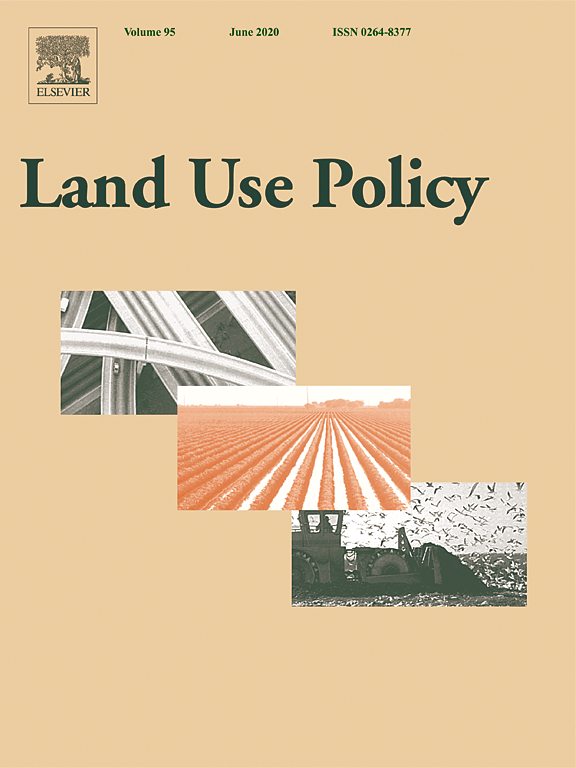Location
Land Use Policy is an international and interdisciplinary journal concerned with the social, economic, political, legal, physical and planning aspects of urban and rural land use. It provides a forum for the exchange of ideas and information from the diverse range of disciplines and interest groups which must be combined to formulate effective land use policies. The journal examines issues in geography, agriculture, forestry, irrigation, environmental conservation, housing, urban development and transport in both developed and developing countries through major refereed articles and shorter viewpoint pieces.
Land Use Policy aims to provide policy guidance to governments and planners and it is also a valuable teaching resource.
ISSN: 0264-8377
Members:
Resources
Displaying 46 - 50 of 279Not seeing the carbon for the trees? Why area-based targets for establishing new woodlands can limit or underplay their climate change mitigation benefits
Area-based targets for afforestation are a frequent and prominent component of policy discourses on forestry, land use and climate change emissions abatement. Such targets imply an expected contribution of afforestation to the net reduction of greenhouse gas emissions, yet the nature of afforestation undertaken and its geographical distribution means that there is considerable uncertainty over the eventual emission reductions outcomes.
Total income and ecosystem service sustainability index: Accounting applications to holm oak dehesa case study in Andalusia-Spain
This research develops the novel concept of an economic ecosystem service sustainability index from the perspective of total income theory, and presents its empirical application at the spatial unit scale of the agroforestry farm. This paper compares the results accrued from applying the refined standard System of National Accounts (rSNA) and the authors’ Agroforestry Accounting System (AAS).
Who is resilient in Africa’s Green Revolution? Sustainable intensification and Climate Smart Agriculture in Rwanda
Under the banner of a "New Green Revolution for Africa," agricultural intensification programs aim to make smallholder agriculture more productive as well as "climate smart". As with Green Revolutions in Asia and Mexico, agricultural innovations (hybrid seeds, agronomic engineering, market linkages,and increased use of fertilizer and pesticides) are promoted as essential catalysts of agriculture-led economic growth.
Protecting our prairies: Research and policy actions for conserving America’s grasslands
Grasslands are among the most endangered ecosystems in the world. They supply vital resources for society, support an abundance of wildlife species, and store rich carbon reserves beneath their surfaces. Despite this, only a fraction of original grasslands in the United States now remains, and their rate of conversion to cropland has recently reaccelerated. This paper discusses opportunities that are immediately available to reduce the loss of U.S. native grasslands (i.e., prairie) and advance toward collective goals in grassland conservation.
Public policy design: Assessing the potential of new collective Agri-Environmental Schemes in the Marais Poitevin wetland region using a participatory approach
The conciliation between different issues such as agriculture production, biodiversity conservation and water management remains unsolved in many places in the world. As a striking example, the wet grasslands of the Marais Poitevin region (France) presents many obstacles against the integration of these issues, especially in terms of public policy design.



